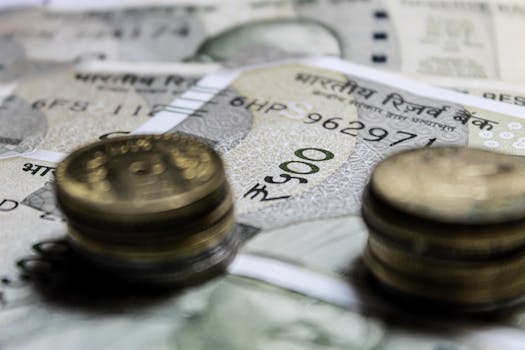
**
India Demands Overhaul of Multilateral Banks and Fairer Credit Rating Systems: Finance Minister's Call for Global Reform
India has launched a powerful call for significant reforms within the global financial architecture, demanding a more equitable system of multilateral development banks (MDBs) and a fairer approach to credit rating methodologies. Finance Minister Nirmala Sitharaman, in a series of recent pronouncements and international engagements, has highlighted the need for these crucial changes, arguing that the current system disproportionately disadvantages developing nations like India. This push for reform underscores India's growing economic influence and its commitment to shaping a more just and representative global financial order. The call resonates with many developing economies facing similar challenges in accessing capital and navigating the complexities of the international financial system.
The Need for MDB Reform: A Critical Assessment
Sitharaman's arguments for MDB reform center on several key issues. She has consistently criticized the current capital adequacy frameworks of institutions like the World Bank and the International Monetary Fund (IMF), arguing that they are insufficient to meet the escalating demands of developing economies, especially in the face of global challenges such as climate change and pandemics. The inadequate lending capacity of these institutions, she argues, hinders crucial infrastructure development and sustainable growth in nations like India.
Key Concerns Highlighted by the Finance Minister:
- Insufficient Capital: Current capital levels are inadequate to address the scale of global challenges and developmental needs, particularly in emerging markets. India believes a significant increase in MDB capital is crucial.
- Slow Decision-Making Processes: The bureaucratic hurdles and slow decision-making processes within MDBs often delay crucial funding for vital projects. Streamlining these processes is vital for timely implementation.
- One-Size-Fits-All Approach: Sitharaman has criticized the one-size-fits-all approach of MDBs, arguing that they need to tailor their lending strategies to the specific needs and contexts of individual countries.
- Lack of Representation: Developing nations often lack sufficient representation in the decision-making processes of MDBs, leading to policies that may not adequately reflect their priorities. India advocates for greater inclusivity and a more balanced power structure.
Challenging the Status Quo: Reforming Credit Rating Agencies
Beyond MDB reform, Sitharaman has also called for a significant overhaul of the global credit rating system. She argues that the current system, dominated by a few powerful agencies, is biased and lacks transparency. These agencies, she points out, often rely on outdated methodologies that do not adequately reflect the economic realities and resilience of developing nations. This, in turn, leads to unfair credit ratings that can negatively impact access to capital and borrowing costs.
The Impact of Unfair Credit Ratings on India:
- Higher Borrowing Costs: Unfavorable credit ratings can lead to higher borrowing costs for Indian businesses and the government, hindering economic growth and development.
- Limited Access to Capital: Negative ratings can limit access to international capital markets, restricting investment opportunities.
- Distorted Investment Decisions: Inaccurate ratings can lead to distorted investment decisions, both domestically and internationally, potentially harming economic efficiency.
India's Role in Shaping Global Financial Reform
India's vocal advocacy for reform reflects its growing stature on the global stage. As a rapidly developing economy with a significant voice in international forums, India is uniquely positioned to push for a more just and equitable global financial architecture. Its call for reform isn't merely a self-serving agenda; it's a call for a more representative and effective system that benefits all developing nations striving for sustainable growth.
Strategic Initiatives for Driving Change:
- International Collaboration: India is actively engaging with other developing nations to build a united front in demanding reform within MDBs and credit rating agencies.
- Policy Advocacy: The Indian government is actively engaging in international forums to advocate for its policy recommendations and promote a more equitable global financial order.
- Alternative Financing Mechanisms: India is exploring alternative financing mechanisms to diversify its access to capital and reduce reliance on traditional Western-dominated institutions.
The Path Forward: Achieving Meaningful Reform
The path to meaningful reform in multilateral banks and credit rating systems is undoubtedly challenging. It requires a concerted effort from various stakeholders, including developing nations, developed countries, and the institutions themselves. However, India's strong advocacy and commitment to achieving a fairer global financial system offers hope for a more equitable future. The ongoing dialogue and negotiations will be crucial in determining the extent to which India's call for reform is addressed and implemented. The success of this endeavor will significantly impact the trajectory of global development and the prosperity of developing nations worldwide. The future of global finance hinges on the willingness of all players to embrace change and create a truly equitable system. The keywords used here - multilateral development banks, MDB reform, credit rating agencies, India economy, global finance, Nirmala Sitharaman, World Bank, IMF, sustainable development, developing nations, economic growth - will help improve search engine optimization.


















